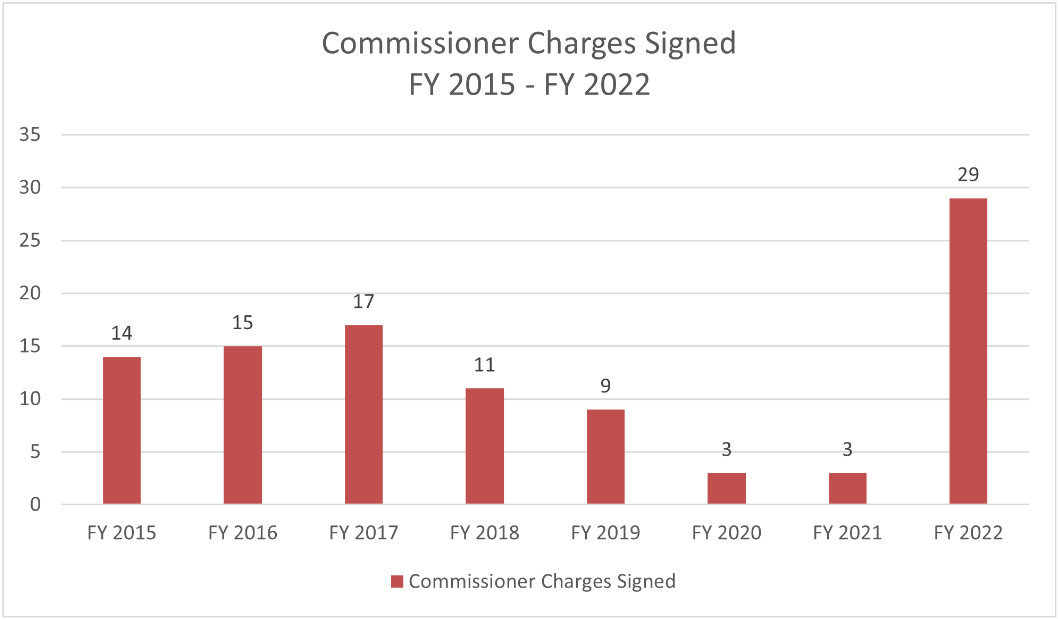Life After Students for Fair Admissions: Dissecting Challenges to Employers’ Diversity Programs
At a Glance
- The American First Legal Foundation has taken the position that all diversity, equity and inclusion programs are illegal since the Students for Fair Admissions Inc. decision from the U.S. Supreme Court.
- Policies at issue in these lawsuits include goals for the placement of people of color and women in leadership and leadership pipeline positions to match community demographics by a certain year; employee training and apprenticeship programs focused on underrepresented groups; and quantitative representation metrics for leadership incorporated into annual incentive compensation awards for senior leadership.
In our recent post, we discussed seven steps organizations may consider when evaluating potential legal challenges to their diversity, equity and inclusion (DE&I) policies and programs following the Supreme Court’s Students for Fair Admissions decision. In addition to litigation filed prior to that decision, challenges are expected to increase given the letter from 13 Republican state attorneys general warning Fortune 100 companies about DE&I programs in contracting and employment, Senator Tom Cotton’s warning letter to top law firms and the passage of state bans on DE&I initiatives at public universities (i.e., Texas and Florida).
One group that has been active in suing private companies is the America First Legal Foundation (AFL). AFL is taking the view that “all DEI programs, and all ‘balancing’ in employment, training, scholarships and promotions, based on race, national origin, or sex are illegal.” AFL is engaged in an ongoing campaign to challenge “woke corporations” for “illegally engaging in discriminatory employment practices that penalize Americans based on race and sex."1 To date, AFL has brought complaints against many large U.S. companies covering a range of industries and sectors.
The challenges to DE&I programs have a pattern.
First, groups such as AFL use companies’ public statements, policies and programs about DE&I — as highlighted in those companies’ SEC filings, annual reports, DE&I reports, CEO statements, press releases and other publicly available information – as alleged evidence of unlawful discrimination against Whites, Asians and men in violation of Title VII and state/local civil rights laws. The policies and programs that are often targeted include:
- Goals for the placement of people of color and women in leadership and leadership pipeline positions to match community demographics by a certain year (e.g., by 2025).
- Employee training and apprenticeship programs focused on underrepresented groups.
- Quantitative representation metrics for leadership incorporated into annual incentive compensation awards for senior leadership.
Relying on the Equal Employment Opportunity Commission (EEOC) regulations’ provision that “[a]ny person or organization may request the issuance of a Commissioner charge for an inquiry into individual or systemic discrimination” (29 CFR Part 1601.6(a)), AFL has sent letters to the EEOC claiming that various companies’ employment policies and programs are facially illegal under Title VII and provide a basis for the EEOC to initiate investigations and issue Commissioner Charges.2 As we previously noted, one EEOC Commissioner, Commissioner Lucas, has expressed the view that the EEOC’s does “not impose ‘equitable’ outcomes,” and stressed that “[t]he Court never has blessed employers taking race-conscious employment actions based on interests in workplace diversity.” The number of signed EEOC Commissioner Charges rose dramatically in FY 2022 to 29, with Commissioner Lucas leading with twelve signed charges (41%).

Source: https://www.eeoc.gov/commissioner-charges-and-directed-investigations
Second, challenges have involved writing letters to the targeted companies’ CEOs and boards claiming mismanagement and waste of company assets, violations of federal, state/local anti-discrimination laws and breaches of fiduciary duty and generally including one or more of the following demands:
- Cease and desist from all employment practices that allegedly discriminate based on race, color, sex, or national origin, and/or that are designed to impose racial parity or balancing.
- Public disclosure of (a) contemporaneous email and other communications regarding company programs; (b) evidence management relied upon in determining that these programs would create shareholder value; and (c) legal justification for the programs.
- Retain independent counsel to conduct a comprehensive compliance audit of employment and contracting practices of the company and then make that report available to investors and shareholders.
- Identify and remove individuals who determined that the company’s best interests were not served by non-discriminatory employment practices.
- Preserve of all records in anticipation of litigation.3
The Students for Fair Admissions decision is having a noticeable impact on tactics in these challenges. For instance, the AFL filed a letter request to the EEOC for a Commissioner Charge against a consulting firm citing Students for Fair Admissions as a leading authority for the contention that “[D]ecades of case law have held that — no matter how well intentioned — quotas and employment practices aimed to achieve ‘balancing’ are strictly prohibited. AFL’s letter to the consulting firm referred to DE&I efforts as “cartoonish racism and rambling incoherence.”
That characterization seems to be partly inspired by the Students for Fair Admissions decision, where the majority favorably cites to Justice Gorsuch’s concurrence regarding “the ‘incoherent’ and ‘irrational stereotypes’ that these racial categories further.”4 AFL’s statement also seems to derive inspiration from Justice Thomas’s concurrence where he says, “[T]he solution to our Nation’s racial problems thus cannot come from policies grounded in affirmative action or some other conception of equity. Racialism simply cannot be undone by different or more racialism.”5 (emphasis added)
In conclusion, it remains lawful for employer to develop programs and policies aimed at providing equal employment opportunities. The Democratic Attorneys General Association took that position in its response to the letter sent by the 13 Republican attorneys general which took the opposite position.6 However, in light of the Students for Fair Admissions decision and increased attacks by interest groups, employers must be careful when developing, communicating about and implementing DE&I programs to ensure that they are not engaged in illegal discrimination. For instance, goals that really look like quotas, set asides and racial balancing are problematic, could draw challenges and could find a sympathetic ear with the EEOC and judges.
Takeaways
In light of these attacks, employers should consider the steps outlined in our recent post, to take stock after the Students for Fair Admissions decision. Understanding what and how companies DE&I programs are being challenged is useful in this review process. In addition to that review, training those involved in the hiring, retention and promotion processes to ensure that practical implementation of your policies is aligned with your mission and policy directives and is consistent with the law is also important.
Faegre Drinker is carefully monitoring the impacts of the U.S. Supreme Court’s decisions in Students for Fair Admissions Inc. v. President & Fellows of Harvard College and Students for Fair Admissions Inc. v. University of North Carolina, including what it means for admissions practices in higher education, as well as employment hiring decisions. We draw on a full-service platform with national education, employment, government contracts and appellate teams ready to address the array of issues our clients face as a result of the decision. For more information and resources, visit the Faegre Drinker website.
- https://aflegal.org/woke-corporations/
- America First Legal, America First Legal Puts Woke Corporations, Law Firms, and Hospitals on Notice: All DEI Programs and Workplace “Balancing” Based on Race, National Origin, and Sex Violate the Law accessed on July 31, 2023 at https://aflegal.org/america-first-legal-puts-woke-corporations-law-firms-and-hospitals-on-notice-all-dei-programs-and-workplace-balancing-based-on-race-national-origin-and-sex-violate-the-law/. The letters to the EEOC generally mention that the targeted companies’ race-based contracting and procurement practices violate Section 1981 of the Civil Rights Act of 1866, sometimes citing Justice Ginsburg for supposed support.
- Id.
- Students for Fair Admissions, Inc. v. President & Fellows of Harvard Coll., 143 S. Ct. 2141, 2168 (2023).
-
Id. at 2202 (2023) (Thomas, J. concurring)
- “To be clear: it is legal for businesses to be responsive to their workforce’s wishes and concerns through diversity programs and initiatives. Many business leaders have for decades been rightfully committed to supporting all of their employees and enriching their businesses as a result.” Democratic Attorneys General Association, Daga Co-Chairs Condemn Republican Ag Letter That Threatens Businesses Over Diversity, accessed on July 31, 2023 at https://dems.ag/daga-co-chairs-condemn-republican-ag-letter-that-threatens-businesses-over-diversity/.
The material contained in this communication is informational, general in nature and does not constitute legal advice. The material contained in this communication should not be relied upon or used without consulting a lawyer to consider your specific circumstances. This communication was published on the date specified and may not include any changes in the topics, laws, rules or regulations covered. Receipt of this communication does not establish an attorney-client relationship. In some jurisdictions, this communication may be considered attorney advertising.






